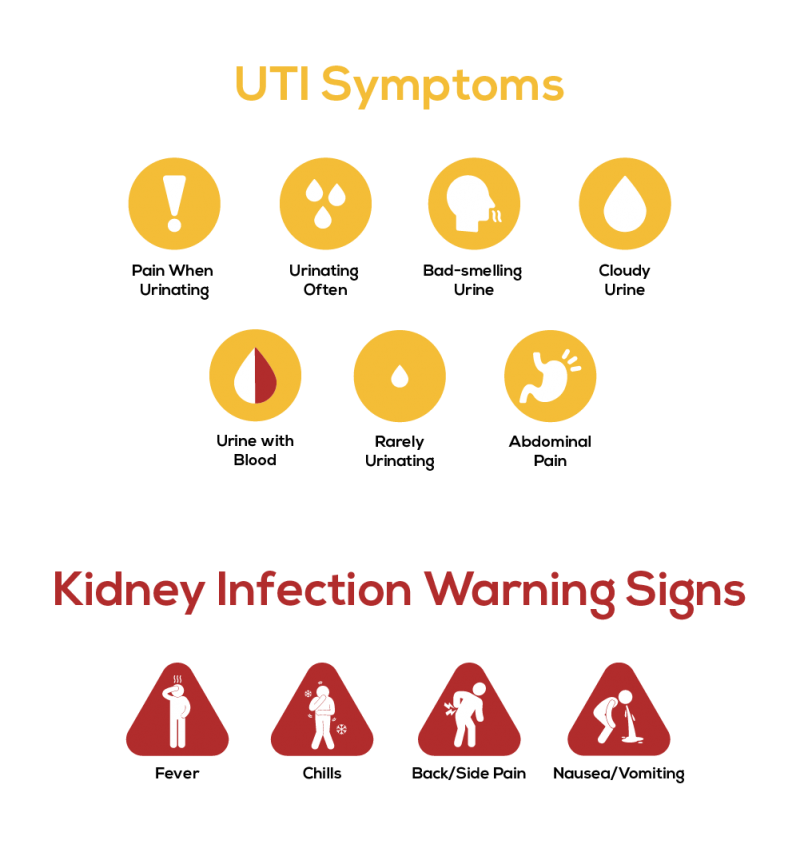Understanding the Trick Differences Between Kidney Stones and Urinary Tract Infections: A Detailed Review for Patients
Understanding the distinctions between kidney stones and urinary system infections (UTIs) is important for individuals who may be experiencing similar signs yet deal with greatly different health difficulties. While both conditions can manifest discomfort in the lower abdomen or back, their underlying causes, analysis strategies, and therapy methods diverge significantly. A nuanced comprehension of these differences not just help in exact self-assessment but likewise educates conversations with doctor. As we check out these crucial facets, it ends up being clear that acknowledging the special qualities of each condition can greatly influence individual results. What might be the very best technique to attending to these differences?
Summary of Kidney Stones
The development of kidney stones, a frequently incapacitating and agonizing problem, emphasizes the important relevance of preserving renal wellness. The key kinds of kidney stones consist of calcium oxalate, calcium phosphate, uric acid, struvite, and cystine stones, each with distinct causes and risk elements.
Several variables add to the formation of kidney stones. Additionally, metabolic disorders and specific medical problems may predispose people to stone development.
Signs of kidney stones can consist of extreme flank queasiness, hematuria, and discomfort, which typically trigger immediate clinical examination. Treatment options differ, varying from boosted fluid consumption and nutritional modifications to clinical treatments such as lithotripsy or medical removal, relying on the dimension and area of the stones. Understanding these aspects is vital for effective prevention and monitoring.
Introduction of Urinary System Tract Infections
Urinary tract infections (UTIs) stand for an usual yet substantial health concern, affecting countless individuals every year. These infections occur when bacteria enter the urinary system, which includes the kidneys, ureters, bladder, and urethra. Most of UTIs are triggered by Escherichia coli, a sort of microorganisms commonly found in the stomach system. While UTIs can influence anyone, they are specifically prevalent in women as a result of anatomical distinctions that facilitate microbial entry.
The threat elements for establishing a UTI consist of sex-related task, particular kinds of contraception, urinary retention, and a background of previous infections. Individuals with damaged pre-existing problems or immune systems, such as diabetes mellitus, may likewise go to better risk. UTIs can be identified right into 2 primary types: difficult and straightforward. Uncomplicated UTIs are usually limited to the bladder and are much more usual in healthy people, while challenging UTIs might involve the kidneys and occur in those with underlying wellness problems.
Trigger medical diagnosis and treatment are important to stop difficulties, such as recurrent infections or kidney damage (Kidney Stones vs UTI). Commonly, UTIs are treated with prescription antibiotics, and safety nets can be used for those with frequent events
Typical Symptoms Comparison
Signs and symptoms of urinary tract infections and kidney stones can often overlap, leading to complication in diagnosis. In comparison, kidney stones often tend to cause extreme, sharp pain that emits from the back to the lower abdominal area and groin, frequently defined as colicky pain.
Furthermore, UTIs might be accompanied by high temperature and chills, particularly in a lot more extreme instances, while kidney stones can lead to nausea and vomiting due to intense pain. While discomfort during peeing is a characteristic of UTIs, kidney stones generally provide with more severe discomfort episodes, which might go and come.
Medical Diagnosis Methods
Exactly how can healthcare experts properly distinguish in between kidney stones and urinary system infections? The analysis process starts with an extensive case history and a comprehensive evaluation of the individual's symptoms. Clinicians typically do a health examination, which might expose tenderness in the abdomen or flank region, directing This Site the diagnostic pathway.
Laboratory tests play visit an essential role in comparing these 2 problems. Kidney Stones vs UTI. A urinalysis can determine the existence of blood, crystals, or bacteria, which are indicative of either condition. In cases of urinary tract infections, the urinalysis may reveal a considerable existence of leukocyte and nitrites, while kidney stones may present with particular crystals
Imaging research studies, such as stomach ultrasound or computed tomography (CT) scans, are necessary for envisioning kidney stones. These imaging methods enable doctor to assess stone dimension, location, and prospective obstructions in the urinary system tract. On the other hand, urinary tract infections usually do not require imaging unless difficulties are thought.
With each other, these diagnostic approaches equip healthcare experts to accurately set apart and identify in between kidney stones and urinary system tract infections, making sure that clients obtain suitable treatment and management.
Treatment Alternatives and Prevention
While both kidney stones and urinary system tract infections (UTIs) call for prompt treatment, their monitoring techniques vary substantially.
The treatment for kidney stones frequently entails pain monitoring, hydration, and in some situations, medical procedures such as extracorporeal shock wave lithotripsy (ESWL) or ureteroscopy to damage or remove down stones. Patients are frequently suggested to increase fluid consumption to assist in stone flow and reduce reoccurrence. Nutritional alterations may also be needed, relying on the stone kind.
On the other hand, UTIs are mainly treated with anti-biotics to eradicate the bacterial infection. The particular antibiotic recommended relies on the microorganisms identified and local resistance patterns. Additional procedures, such as raised fluid intake and urinary system anesthetics, might assist relieve symptoms.
Prevention methods differ too; for kidney stones, maintaining adequate hydration and over at this website sticking to dietary restrictions can be effective. For UTIs, preventive approaches consist of appropriate hygiene practices, peing after intercourse, and perhaps preventative prescription antibiotics for frequent infections. Comprehending these treatment and avoidance methods is crucial for reliable administration and to minimize the threat of difficulties related to both conditions.
Conclusion

Comprehending the distinctions in between kidney stones and urinary system system infections (UTIs) is important for individuals that might be experiencing similar symptoms yet deal with greatly various wellness challenges. The primary types of kidney stones include calcium oxalate, calcium phosphate, uric acid, struvite, and cystine stones, each with unique causes and threat factors.

Comments on “Exactly how to Differentiate In Between Kidney Stones vs UTI: Key Aspects and Diagnostic Tips”